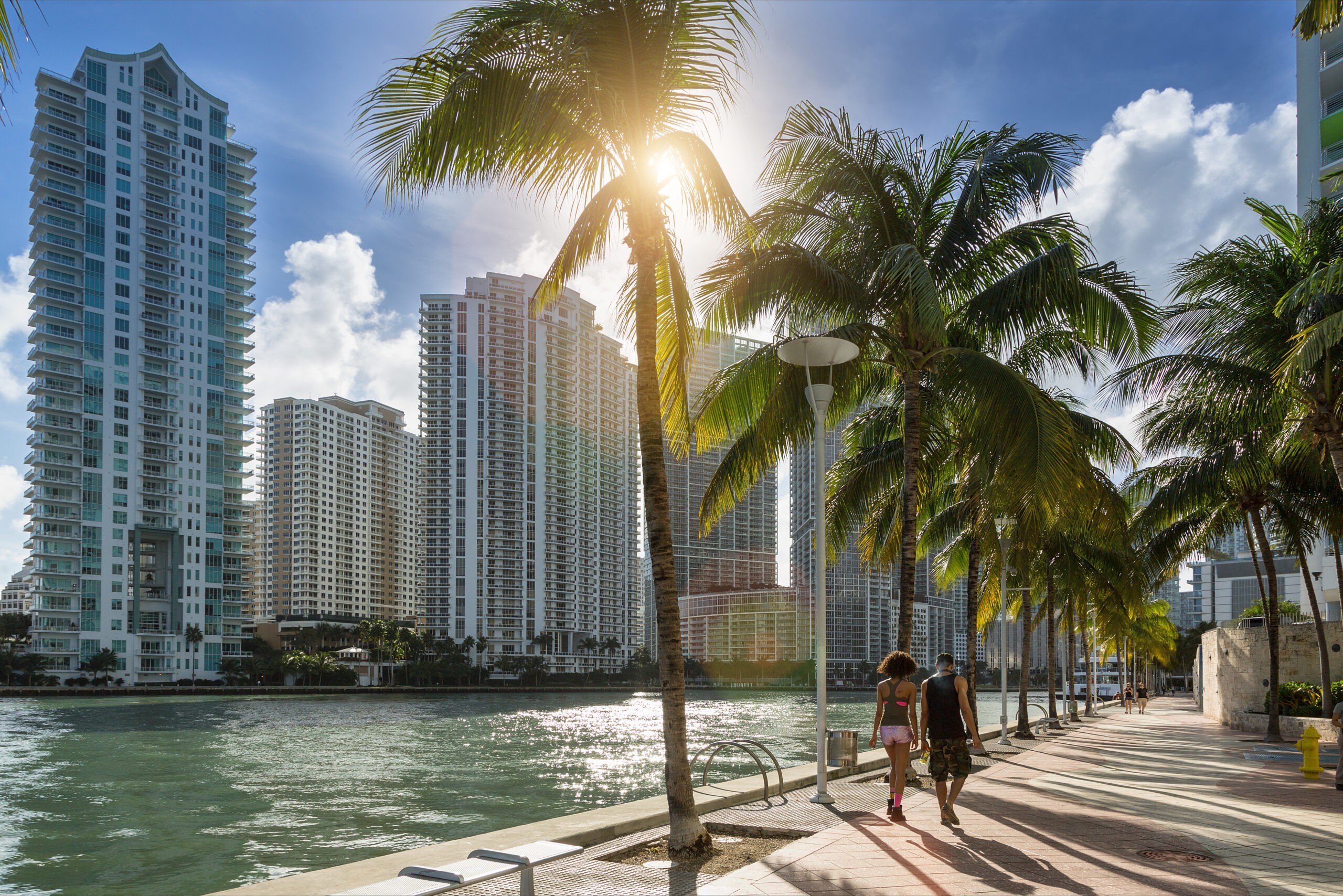Living in Florida is becoming punishingly unaffordable, and nearly half of the Sunshine State’s residents are now considering moving elsewhere, according to a new study.
Florida Atlantic University’s Business and Economic Polling Initiative (BEPI) released the results of its latest poll this week, revealing that just under 50% of Floridians are “seriously considering” moving due to the rising cost of living.
As part of the study, titled “The American Dream Sentiment Survey,” BEPI researchers polled 1,000 Floridians aged 18 years and up, quizzing them about their economic concerns, household budgets, and constraints to see if the American dream still feels attainable.
In the survey’s summary, researchers noted that Florida’s booming economy is shadowed by affordability anxiety—what they call a “sunshine squeeze” that is pushing Floridians toward the exits.
“That ‘moving consideration’ rate is striking,” Eric Levy, assistant director of FAU’s BEPI, said in a statement. “It suggests that while Florida attracts new residents, many current ones feel squeezed enough to think about leaving.”
Meanwhile, Realtor.com® senior economic research analyst Hannah Jones says this finding highlights how Florida’s long-standing value proposition—sunshine, lifestyle, and relative affordability—is increasingly under pressure.
Florida’s surging cost of living is hitting residents hard, with 80% of respondents saying they are concerned about housing affordability—and nearly half describing themselves as “very concerned.”
Inflation also weighs heavily on Floridians, with 90% saying they are at least “somewhat concerned” about rising prices and 56% saying they are “very concerned.”
“For retirees or fixed-income residents, the squeeze is especially acute as what was once considered a cost-efficient move south is now far less attainable,” says Jones. “Altogether, the data suggest Florida’s housing market may be transitioning from a story of rapid growth and migration to one defined by affordability strain and recalibration.”
Dream of homeownership under threat
In fact, struggling to make ends meet each month due to skyrocketing everyday costs has become the norm in Florida, with nearly 70% of survey respondents admitting to feeling that strain at least occasionally—and 43% saying they live paycheck to paycheck.
“For most Floridians, financial security feels one expense away from collapse,” stated Monica Escaleras, chair of the department of economics and director of BEPI. “Many of those surveyed attributed the high cost of living to not being able to save more.”
And while 3 in 4 Floridians still view homeownership as part of the American dream, many now consider it beyond their reach.
Just over half of the survey participants said that they are at least “somewhat confident” they could purchase a home today, and close to 80% said becoming a homeowner is harder now than it was five years ago.
More than a third of respondents (36%) cited home prices as the top barrier to homeownership, followed by high interest rates (15%) and down payment costs (11%).
Perhaps unsurprisingly in light of these revelations, Florida’s housing market has seen the biggest slowdown in the U.S. over the past few months despite falling mortgage interest rates. The typical for-sale home in Miami was waiting for a buyer 13 days longer in October compared to a year ago, according to the latest monthly housing market trends report from Realtor.com.
The median list price in the Magic City last month registered at $499,999—nearly $76,000 higher than the national figure.
As a result of this trend, many Florida housing markets are now flush with inventory, with some metros seeing listings increase far beyond pre-pandemic levels.
“If current homeowners feeling the ‘sunshine squeeze’ begin to sell in larger numbers, those dynamics could intensify further, putting downward pressure on prices and altering the state’s real estate landscape,” adds Jones.
Florida’s tale of haves and have-nots
BEPI’s latest findings come as no surprise to Cara Ameer, real estate broker at Coldwell Banker Vanguard Realty in Florida.
“Florida has become a tale of two markets: One for the uber-wealthy, many who have recently relocated to the state to make it their primary residence, and one where many longtime owners who are either native to the state or relocated there many years ago have sensed the shift in affordability on everything, from housing, insurance, condo association dues, along with the costs involved with the maintenance and upkeep on properties,” Ameer tells Realtor.com.
According to the veteran agent, many Floridians are feeling squeezed by the myriad rising expenses—from home insurance payments to maintenance fees and the cost of repairs associated with climate-related wear and tear on the properties, prompting some to head for the hills.
“I have had many sellers over the last five years sell their property and relocate out of the state,” says Ameer. “The reasons are varied, but some of it had to do with wanting to move to other areas that weren’t so hot and humid and had less overall costs with keeping up with a home or escaping high condo fees.”
At the height of the COVID-19 pandemic, Florida saw a massive influx of out-of-state transplants who were able to work remotely and enjoy the warm weather. However, according to Ameer, many of the newcomers had failed to do a “deep dive on where and what they were really buying into.”
Ameer stresses that the age-old notion of Florida as a relatively affordable place where retirees and families move to settle down forever has gone out of window as the state has become a “tax shelter” for the wealthy.
“Many of these people can afford to self-insure their properties, so they are not impacted by high insurance premiums and when their landscaper or pool service raises their prices,” adds the agent.
New migration forecast

But not everyone buys into the bleak narrative emerging from the BEPI survey.
Ana Bozovic, a Miami-based real estate agent and founder of Analytics Miami, tells Realtor.com that Florida continues to gain residents, wealth, and businesses at a “remarkable pace.”
“When it comes to housing markets, what matters is net population movement,” she says. “While some Floridians may be considering a move, the inflow of new residents continues to far outweigh the outflow.”
And Bozovic notes that with the victory of Zohran Mamdani in the New York City mayoral race on Tuesday, Florida stands to benefit from an accelerated flight of taxpayers from the high-tax, high-regulation Empire State.
“We are not bracing for an exodus,” she contends. “We are preparing for the next inflow.”

